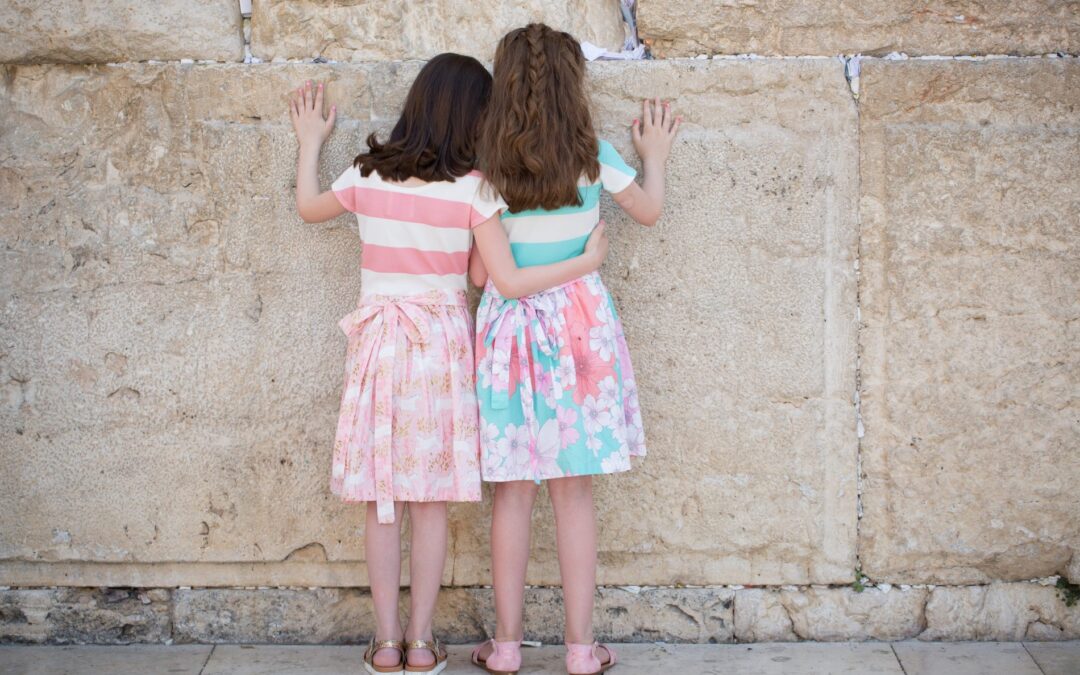There are times in our lives when we are thrown a curveball. All seems fine, days rolling one into the other, routines well in place, when a call or a piece of news will stop us in our tracks. Our innate need for some sense of control pushes us towards action. We want to do something, anything. We want to fix things and set everything right again. But sometimes, we can’t. Sometimes, we feel powerless. Sometimes we are pained, to the depths of our hearts. It is in those times that we need to remember that there is something that we can do. We can remember that we were never the ones in control in the first place and remember that we do have the power to pray.
This Shabbat, Shabbat Shira, we read Parashat Beshalach. Bnei Israel have fled Egypt and find themselves facing the sea before them, the Egyptians gaining on them and desert all around. There was nowhere to run, nowhere to hide, their end seemed imminent. “Pharaoh approached; the Children of Israel raised their eyes and behold – Egypt was journeying after them and they were very frightened, the Children of Israel cried out to Hashem: (Shemot 14:10-11). Rashi interprets “they cried out” to mean “they grasped the craft of their fathers”, meaning that they remember the lessons of the patriarchs and prayed just as did Avraham, Yitzchak, and Yaacov. Yet a few verses later, G-d tells Moshe, “Why are your crying out to me? Tell Bnei Israel to continue and travel” (Shemot 14:15). Our sages offer a few clarifications to explain this perplexing verse that would suggest that G-d is actually rejecting their prayer. Though it was the people who cried out, the Ibn Ezra explains that G-d is addressing Moshe as their representative. Rashi fills in the story suggesting that Moshe prayed for them as well. The Meshech Chochmah supports Rashi’s interpretation and suggests that Moshe should step back and allow the people to forge their own way ahead.
The Midrash teaches that Yitzchak gifted his descendants with the power of prayer, “Hakol, kol Yaacov”, the voice is the voice of Yaacov, (Bereshit 27:22). Thus, drawing on sefer Yeshayahu (65:24), the Midrash continues to explain that the power of their prayer was so great that “before you call out, I will already answer”; the power of prayer of Bnei Israel was so great that all they needed to do was to reach out to G-d; the words they would use were of secondary importance. This, the Sfat Emet says, is why G-d stopped Moshe. “Why do you call out to me?” implies that their desire to pray was sufficient. G-d will take care of them and save them. It was time for them to take charge of their destiny, to recognize the power they themselves had within them, to actualize their faith in G-d.
Shirat Hayam, the song of the sea, is the expression of that faith. “Az yashir Moshe….” (Shemot 14:30-31), sung every morning, reminds us of the desperation and fear faced with absolute faith in G-d. It was a moment of incredible transformation for our people and a daily reminder to all. We have the power to pray, to remember that G-d is in control.
Dr. Deborah Gilboa, in a recent webinar for parents and educators, shared that while we are still in the midst of this global pandemic, there is more behind us than ahead of us. Yet, be it Covid-related or not, we find ourselves fearing for the well-being of our friends and loved ones. We must remember that we are not powerless; we have the ability to reach out to G-d and pray, and actualize our faith just as did our forefathers.
Wishing a refuah shlema to all those in our community who need it.
Shabbat Shalom,
Dr. Laura Segall
Head of School

